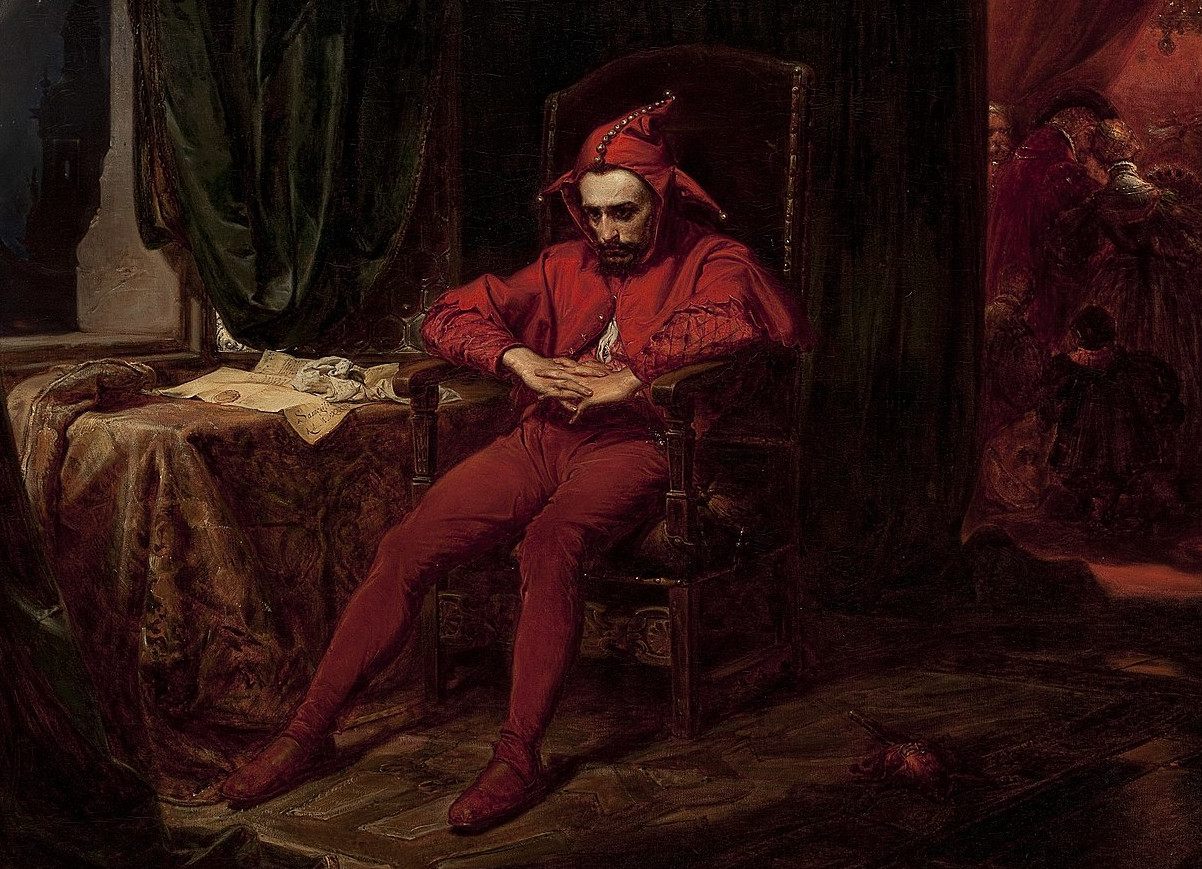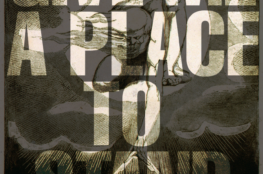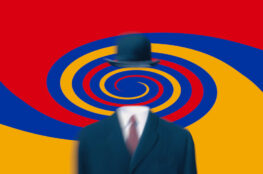I argued in previous articles that satire is a subcategory of ethics and, by comparing Armenians in America in 1981 and Armenians in Armenia in 18 A.D., showed conclusively that Armenians don’t have now nor have ever had an ethic. Therefore, to do what I want to do, which is write satire, and to do it in the right way, I’m forced to create an ethics.
But ethics in turn is a subcategory of philosophy…If ethics answers the question “How should one behave?” then philosophy answers the question “What is real?” It’s obvious that a person who doesn’t have a quarter also doesn’t have a dollar, and so if Armenians don’t have ethics, then it follows that they don’t have a philosophy either, which I’m also forced to create.
I say “create” an ethics and “create” a philosophy because I won’t be borrowing or importing these wholesale from other thinkers of other nations, especially not the from the sophists that are popular in this new Dark Age. I have to create them myself–and even out of myself–because the Armenian spirit has its own very peculiar features, and no second-hand philosophy will do, as Gostan Zarian rightly wrote, “Ideas and ideals are not worth a penny, if they are not tightly connected with the country, with the native features of development.”
An Armenian philosophy needs to be an ambiguous philosophy, since ambiguity is the only constant in the Armenian character. This isn’t to say a “confused” philosophy, but rather one characterized by duality, the way “ambidextrous” means capable of using both the right and left hand, or “ambivalent” meaning holding two opposing views or motives at the same time. An ambiguous Armenian philosophy would be one that views all things with both the right and the left eye; that thinks with both the right and left hemispheres of the brain; that listens with both the right and left ear; that understands that to get ahead means alternately putting the right foot in front of the left foot, and then the left foot in front of the right foot; and, finally, does all this with both the right and the left…testicle.
Instead of doing this instinctively, or at random, I want to lay it on a solid foundation and give it conscious form. However, this doesn’t mean that I need to create a philosophy from nothing. There are already philosophies that have this duality at their center, to which my ambiguous soul has always been powerfully drawn as if to a native shore, such as the philosophy of Heraclitus and his Logos, and the Dao of Lao Tzu and the Yin and Yang. Not to mention that at the heart of all philosophy itself lies the idea that the world is twofold, one aspect being appearance and the other being an ultimate reality which is the duty of the philosopher to discover.
The problem is…I’m not a philosopher. I’m a satirist. In the absence both of a code of ethics and a philosopher capable of firmly establishing one, I have no choice but do what Baron Munchausen did and pull myself and the horse I’m riding on up out of a swamp by my own hair and carry myself to solid land by making a philosophy as a basis for ethics, and an ethics as a basis for satire, myself. I’m like a vandal who wants to scrawl funny graffiti on a wall but who, finding himself in a desert, needs to first build a wall to draw on. Soon learning that one wall won’t stand unsupported by itself, cursing under his breath, he lays a foundation with great difficulty, then builds an additional three walls, then thinks he may as well add a roof to protect the foundation and in turn columns to support the roof. At long last, he finds himself standing in front of what has turned out to be a very fine temple! Nothing else like it can be seen anywhere. And if you were to walk around it, on one of its strong, gleaming walls, you’d see it written: “KAKA”.
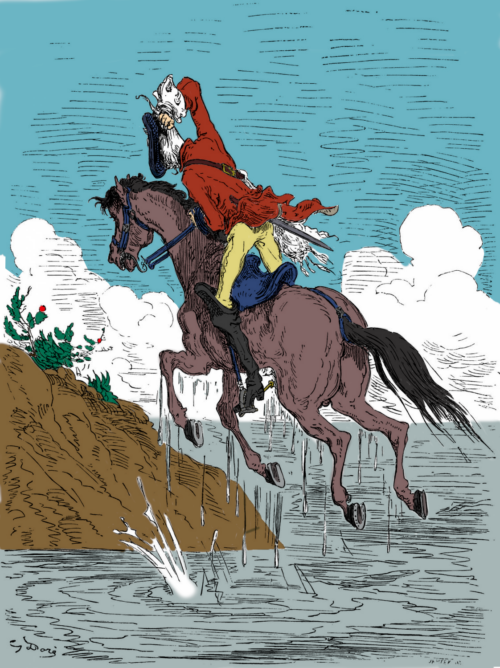
The relationship between philosophers, lawmakers, and comedians as I understand it is the following. First, a philosopher discovers what is real in contrast to what is merely appearance. Then, given what is real, the philosopher creates laws on how one should behave in light of this reality; for, as David the Invincible rightly notes of Lycurgus, “the first philosophers were also legislators” (41). Finally, a comedian comes in to ridicule those who break these ethical laws.
A comedian finding out what is real, making laws, and then ridiculing those who break those laws might sound like a case of the wily fox both building and guarding the henhouse. But in a funny way, there’s a certain natural kinship between comedians and philosophers, such that where no philosophers are to be found, one might make do with a comedian.
The best comedians are also sharp thinkers, and the best thinkers, as evidenced by the profusion of biting and clever sayings attributed to them, are often very funny people. Some of the funniest things I’ve read have come from the pens not of comedians, but philosophers. Think about the antics and comebacks of Diogenes the Cynic; the one-liners of the laughing philosopher Democritus; the sick burns of Heraclitus; the irony and bon mots of Voltaire, who was simultaneously a philosopher and a satirist; or, the perfectly worded polemics and observations of Schopenhauer, whose essay “On Women”, if it were written as a comedy routine, would kill on any stage. The Roman satirist Persius was educated as a Stoic philosopher, and has even been explicitly called a “Philosopher-Satirist”. As to why this is, it may be said that both the comedian and the philosopher are distinguished by their sharp perceptions of the world around them and the blunt statement of them thereof, regardless of what others think.
While the love of truth is understood to be the primary trait of the philosopher, it’s also no less the aim of every comedian. In fact, the comedian’s whole business is the truth. It’s easy to demonstrate this when you consider that impersonations, for example, are funny in direct proportion to their proximity to the truth. Comedians really are mirrors of reality, as Baronian says in the preface to Armenian Big Shots in which he says he merely shows people as they are and not as they wish to be seen, and that he’s not to blame if his subjects don’t like what they see reflected: “What mirror shows the reflection of a midget as Achilles?” (1)
When something is very true it can’t help but be very funny at the same time. (It couldn’t only have been me who smiled and even laughed at the completion of a geometric proof.) Nine-tenths of all humor is an apt analogy, and analogies are funnier the more two things are commonly considered different but shown to correspond closely.
Often the blunt statement of fact alone is enough to elicit laughter. It’s not merely as the great Aristophanes said that comedy sometimes discerns what is right and speaks the truth, (Acharnanians, page 111) in many cases, it’s comedy alone that can do so, because often the truth is not so difficult to find, but because it is bitter, unpleasant, embarrassing, or frightening, it’s only the brave or the half crazy who look left and right, point their finger at it and say, “Does no one else see this?”
A more surprising similarity than truth being the guiding star of both philosophers and comedians is that neither are above telling outright lies in the service of the truth. This is an acknowledged aspect of comedy, whose exaggerations and inventions the dull-minded take as falsifications or fantasy, but which actually serve to highlight what is true on a deeper level. The use of sarcasm and irony, for example, aim solely at the truth, despite the fact that it’s the truth in reverse. Referring to a dwarf as “Goliath”, for example, or a fat man as “tiny” is meant only to bring out the actual shortness or fatness of each by extreme contrast.
The practice of caricature, of exaggerating certain qualities or features out of all proportion, only serve to highlight what is already there. A man is depicted with a nose ten times bigger than his actual nose only to bring attention to the reality of his having a bigger than usual nose. It would completely miss the mark and serve no purpose to do the same for someone with a nose of average size and shape.
In philosophy, Plato gives us the most famous example of philosophy’s penchant for fictions with his famous “noble lie” of The Republic (414 b-c) as a means of getting what is ultimately true to be accepted by those who otherwise have no eyes to see it. He repeats this again in his final work, the Laws, where he writes, “the lawgiver, who is worth anything, if he ever ventures to tell a lie to the young for their good, could not invent a more useful lie than this” (664d-e). Less well known is Aristotle’s statement in his Politics that constitutions are preserved by the presence of an outside enemy and that “a ruler who has care of the constitution should invent terrors, and brings distant dangers near, in order that the citizens may be on their guard, and, like sentinels in a night-watch, never relax their attention” (1308a). And earlier still was the man who coined the very term philosophy, Pythagoras, who was the biggest liar of them all: “Pythagoras by magic arts/ And mystic talk deludes men’s hearts” (Plutarch, Life of Numa, Chapter 8). Anyone who has a significantly greater intellectual capacity than another, like a parent compared to a child, knows the necessity of telling a comprehensible lie in the place of an incomprehensible truth, and there is nothing wicked in this as long as no harm is intended.
Remember that Aristophanes sat at the same symposium as Socrates where the nature of love was under discussion. The comedian’s account of love through a fantastic creation myth about spherical, eight-limbed hermaphorditic creatures might well have been ridiculous as he warned upfront (189b), but by the end, he twice begs his listeners to take it seriously (193c-d) because, indeed, the most serious things are often expressed through ridiculous means.
Therefore, of both comedians and philosophers we may use the motto placed underneath the drawing of Baron Munchausen by Gustave Doré which reads “MENDACE VERITAS”, or “In falsehood, truth.”
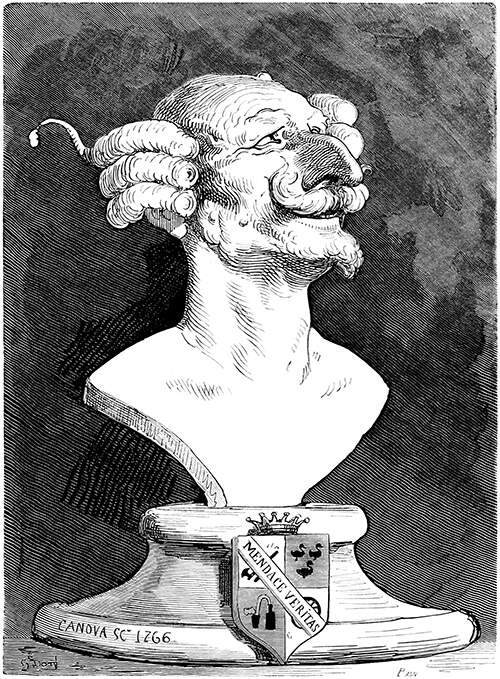
In book 1 of his Metaphysics, Aristotle famously states that “wonder”(thaumazein) was the beginning of all philosophizing (section 982b), [1] an idea which has found currency with philosophers for thousands of years up at least through Arthur Schopenhauer, who reaffirmed it by writing that “the philosophical disposition properly speaking consists especially in our being capable of wondering at the commonplace things of daily occurrence” (pp. 160-161).
At the same time, in his Rhetoric, Aristotle observed that the main element of comedy was when things turn out differently from our expectations, or, in a word, surprise (Book 3, Chapter 11). But this is very nearly the same feeling that gives birth to philosophy. Explaining why man alone philosophizes, Schopenhauer writes, “No beings, with the exception of man feel surprised at their own existence” (ibid. 160). Indeed, what’s the difference between “wonder” and “surprise” except that they are different words for the same feeling?
The world is one big set up and each man’s existence but a punch line…
With wonder as the cause of philosophy and surprise as the effect of comedy, it appears that philosophic wonder can result in comedy, and comedic surprise can be the beginning of philosophy.
In undertaking this strange task, the creation of a philosophy by a comedian for the purpose of writing satire with an ethical core, I run the very dangerous risk of being neither comical enough for comedy nor philosophical enough for philosophy.
I’m compelled to do this nonetheless. It must be my fate as an Armenian that I would find myself trapped between two greater powers to the left and right of me, simultaneously serving both and pleasing neither.
But as I believe I’ve shown convincingly, philosophers and comedians aren’t so different after all, and where others see two, I see only one. Where one begins the other ends, and where one ends the other begins, like an ouroboros. Since this is the case, all I have to do is bend over and bite my own tail, which if nothing else, will be a funny sight to see me try.
Footnotes
[1] Cf. also Plato, Thaetetus, 155d.
References
Aristophanes, The Acharnanians. Translated by Anonymous, under the title The Eleven Comedies. Liveright, 192?
Aristotle, Politics. Translated by Benjamin Jowett, from The Basic Works of Aristotle, Edited with an introduction by Richard McKeon. Random House, 1941.
Aristotle, Metaphysics. Translated by W.D. Ross, from The Basic Works of Aristotle, Edited with an introduction by Richard McKeon. Random House, 1941.
Aristotle, Rhetoric. Translated by W. Rhys Roberts. Random House, 1954.
David the Invincible Philosopher, Definitions and Divisions of Philosophy. Translated by Bridget Kendall and Robert Thomson. Scholars Press, 1983.
Baronian, Hagop. Armenian Big Shots. Translated by Hratch Demiurge. Manuscript in preparation.
Plato, Complete Works. Edited by John Cooper. Hackett Publishing Company, 1997.
Plutarch, Life of Numa. Translated by Aubrey Stewart and George Long under the title Plutarch’s Lives, Vol. I, G. Bell and Sons, 1916.
Schopenhauer, Arthur. The World as Will and Representation, Vol. 2. Translated by E.F. J. Payne. Dover, 1966.

